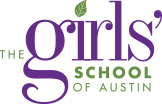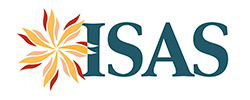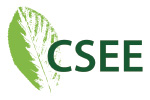
CLASSROOMS
Advisory
Each Middle School class (5th-8th) has two assigned Co-Advisors and a weekly Advisory Period. Using developmentally appropriate check-ins and guided lessons, each Advisory Team supports students’ social emotional learning, academic development, and personal growth.
Our Advisory Teams are trained in: Council Training, Embody Love, Certificate in School Leadership for Social-Emotional Learning and Character Development Program (Rutgers University),. Stanley H. King and Counseling Institute,. Mindfulness: A Still Quiet Place Still Quiet Place Curriculum: 10-week training, Restorative Justice, Advancing Social Emotional Academic Learning (SEAL), Developmental Designs for Middle School, NOLS Wilderness First Responder, World Peace Game Facilitator, and NOLS Trip Leader, and the National SEED Project (Seeking Educational Equity and Diversity).
Middle School SEED and Lower School DEIB/SEL Programs
Our school has been offering SEED (Seeking Educational Equity and Diversity) programming since 2006. Our community understands the importance of diversity and racial literacy and works actively to learn about systems of privilege and oppression, as well as taking the intentional steps to create a more just world. As part of our anti-racist and critical thinking education, we provide diversity lessons to all our students (K-8) to enhance their worldview as well as to empower our students to lead change.
During our monthly lessons, the students work on their SEL competencies and their diversity (difference) literacy through developmentally appropriate activities, picture books, articles, news, and other types of media. Both our Lower and Middle School programming focuses on identity work, system thinking, and action. We cover topics like names and cultural heritage, family, race, racism, age and ageism, able-bodied and ableism, gender, and gender expression, among others.
Community Circles
We use circles of power and respect, whole-class gatherings that build community based on democratic and group-centered principles, to build our community. This Developmental Designs and Advancing Social Emotional Academic Learning (SEAL) pedagogy, creates a safe space for all the members of our community. The grade-level weekly circle allows students to build trust and strong relationships with their peers, teachers, and advisors.
Social Contracts
Our school uses social contracts to include the student voices in deciding the ideal behaviors our community needs to thrive personally, socially, and academically. Our social contract is a live document, agreed by a consensus decision led by teachers and created by students.
SCHOOL
Multi-Cultural Curriculum
Our curricula reflect our belief that academically challenging education flourishes in a respectful, inclusive, and diverse environment. For our students to become both critical thinkers and productive citizens, they must be exposed to differences and multiple points of views within any given topic or situation. A multi-cultural academic approach enhances our students’ world view and their ability to creatively problem solve in a fast-moving intercultural world. Our class reads and class libraries are intentionally filled with multiple perspectives and voices.
Professional Development
Our motivated faculty and staff strengthen and enhance their professional skills and expertise by participating in professional development opportunities with organizations like the International Coalition of Girls’ Schools, ASCD, NAIS, CSEE, ISAS, among others.
Community Meeting
Community Meeting happens first thing in the morning on Fridays. This highly dynamic student– led gathering serves as an opportunity for class sharing, public speaking, whole school announcements, and sister groups hangs.
Sister Groups
At GSA, each student is assigned a multi-grade sister group. These groups create unique bonds that live long after graduation. The students forge friendships and strong mentor-mentee relationships through our monthly sister group activities, centered on creativity, female empowerment, and collaboration.
CASEL Framework
DEIB and SEL topics, skills, and domains are embedded within our school fabric. We use CASEL’s Social Emotional Learning framework to guide everything that we do, inside and outside the classroom. Social Emotional Learning is part of human development and not only does it help students learn better, but also to self-regulate and to be better community members. These are the CASEL domains that we teach and model at the GSA: self-awareness, self-management, social-awareness, relationship skill, and responsible decision-making. https://casel.org/
The Social Institute
Students are spending an average 8.3 hours each day on their screens, according to Common Sense Media, and social media and technology have become some of the greatest influences on students’ health, happiness, and future success — whether or not they own a device.
The Social Institute (TSI) is one of GSA’s Social Emotional programs. TSI provides a gamified, online learning platform that empowers students to navigate their social world — social media and technology — to fuel their health, happiness, and future success. By reinforcing character strengths like empathy, integrity, and teamwork and by showcasing their role models (from student leaders to U.S. Olympians), we use a relevant, positive approach to inspire students to make positive, high-character choices.
FAMILIES & CAREGIVERS
Parent SEED
Every new school year, we start a SEED Parent Cohort. Seeking Educational Equity and Diversity is a national program that encourages community-wide ownership of diversity challenges and solutions. The SEED program is designed to provide a safe environment for the discussion of challenging topics by offering a framework for addressing equity issues in education and society. The SEED program starts on a personal level and asks us to look at our lives and those around us through a variety of lenses, to understand identity and diversity through our own stories and those of others— stories of race, gender, sexuality, religion, privilege, etc. (https://nationalseedproject.org)
We pair our literacy program with advocacy work. In addition to coming together as a community to learn about identities, systems, and how they intersect with each other, we take action. Our advocacy sessions provide our parent community with data, actionable steps and hope to get involved in social justice causes. Once we know better, we do better!
Parent Education
We offer our parent community the opportunity to come together a few times a year to learn and grow together. Some of our offerings include stress management for Lower and Middle School students, social media use and boundaries, and parent-child communication retreat.
Parent Resources
By providing parents with DEIB and SEL resources, they can actively participate in their child’s development, promoting understanding, empathy, and emotional well-being. We use our existing communications channels (ClassDojo, On the Horizon weekly email, Notes from Duncan Hall blog) to share helpful resources to equip parents to walk alongside their daughters on this journey. When parents have access to these resources, they can reinforce the lessons and values taught at school. This consistency between home and school environments helps solidify the importance of DEIB and SEL concepts in a child’s mind.
Weekly Grade-Level Email
As regular DEIB/SEL lessons take place in the classroom, the teacher’s weekly emails serve as a window into these lessons, providing parents with valuable insights, shared language, and thoughtfully crafted questions and conversation starters. This gives parents a concrete tool to effectively support their child’s holistic development and encourages meaningful conversations at home.
COMMUNITY
Service Learning
At the Girls’ School of Austin, one of the core beliefs deeply engrained in the heart of our school is “service to others and self-awareness are essential to the learning experience.” The National Youth Leadership Council (NYLC) defines service-learning as “an approach to teaching and learning in which students use academic and civic knowledge and skills to address genuine community needs.” This framework fits into GSA’s project-based learning and strengthens students’ civic engagement and social and emotional learning. In addition, it expands their skills of critical thinking, collaboration, creativity, and communication. Our Service-Learning Program will focus on reciprocal partnerships, diversity, reflection, and youth voices. Students have the opportunity to age appropriately, examine the institutions, systems, and barriers that are at the roots of these issues. Our goal is that the students practice responsible leadership by understanding the specific needs of the different communities they will be partnering with. This process is driven by student inquiry, followed by careful planning, preparation, action, reflection, and assessment.
Our Service-Learning Program goes hand in hand with our DEIB literacy and advocacy curricula. It focuses on reciprocal partnerships, perspective-taking, reflection, and youth voices. Our goal is for the students to practice responsible leadership by understanding the specific needs of the different communities they partner with. The process is driven by student inquiry, followed by careful planning, preparation, action, reflection, and assessment. This framework fits into GSA’s project-based learning and strengthens students’ civic engagement and social and emotional learning. In addition, it expands their skills of critical thinking, collaboration, creativity, and communication.
Community Partnerships
As part of our Service Learning Program, we partner with the following local organizations: School for the Blind and the Visually Impaired, Safe in Austin, Austin Creative Use, Casa Marianela, and Urban Roots, Austin Sustainable Food Center, among others.
Place-Based Learning
In the bustling city of Austin, GSA takes a dynamic approach to foster diversity through place-based learning. Recognizing the importance of embracing local cultures and histories, the school integrates the rich tapestry of the city into its curriculum. Students embark on immersive experiences, exploring vibrant neighborhoods, engaging with diverse communities, and delving into the stories and contributions of marginalized groups. By weaving place-based learning into their approach, the school not only celebrates diversity but also nurtures empathy, understanding, and a sense of belonging among its students.




